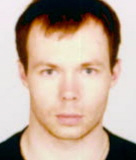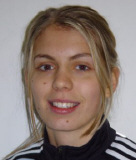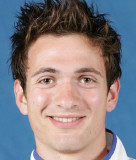Qualifying Rules: Bobsled, Luge & Skeleton
If I'm going to talk about the Jamaicans not qualifying for Torino, then I should at least mention the qualifying rules for the sledding events.
Bobsled: A total quota of 170 athletes (135 men, 35 women) and a maximum of nine men and five women from each country. Countries earn spots on a per-pilot basis based on their performance in World Cup, European Challenge Cup, and North American Challenge Cup events: the World Cup results qualify 22 two-man, 20 four-man and 15 women pilots; the European and North American events provide four and two pilots, respectively, to the two-man and four-man events. The host country gets to enter a team in each event, as does each continent.
Luge: There is a total quota of 110 athletes -- 40 men, 30 women, and 20 doubles -- and a per-country quota of 10 (three men, three women, two doubles). Countries can fill their slots from the pool of qualified athletes; to qualify, athletes must either participate in five World Cup events and receive at least five points by the end of December, or score a certain number of points in a World Cup competition -- 10 for men, 20 for women, and 25 points for doubles.
Skeleton: A total of 45 athletes -- 30 men, 15 women -- can participate, with no more than five (three men, two women) from any one country. On the men's side, athletes from the top 12 countries in the World Cup qualify, plus the first eight athletes in the Challenge Cup; the women's pool is smaller: the top eight countries and the top four athletes, respectively. Add to that one each from the host country and one each from each continent that would otherwise go unrepresented.
These rules are complicated and I can't say that I understand them all. In particular, I'm not sure how national eligibility relates to individual eligibility in these events. But at least this indicates that there are basic qualifying standards to be met, and quotas. And presumably these have been in place long enough that the Jamaicans have actually met them from time to time.
Labels: bobsled, luge, rules, skeleton, torino 2006
 Freestyle Skiing: In
Freestyle Skiing: In  Short Track Speed Skating: The
Short Track Speed Skating: The  Luge: In the
Luge: In the  Luge: An extremely slow third run put
Luge: An extremely slow third run put  Short Track Speed Skating is a little trickier to report on because it's based on heats rather than times: it frequently occurs that a winning time in one heat is slower than the slowest time in another. Your time, in other words, doesn't matter insofar as the standings are concerned. So I'm making an executive decision to post the slowest time overall, whether it comes in the heats, semis or finals. (If nothing else, they record world-record times in this sport, don't they?) Anyway, that's a long enough prologue to some actual results, to wit, those from the men's 1,500-metre individual event (results:
Short Track Speed Skating is a little trickier to report on because it's based on heats rather than times: it frequently occurs that a winning time in one heat is slower than the slowest time in another. Your time, in other words, doesn't matter insofar as the standings are concerned. So I'm making an executive decision to post the slowest time overall, whether it comes in the heats, semis or finals. (If nothing else, they record world-record times in this sport, don't they?) Anyway, that's a long enough prologue to some actual results, to wit, those from the men's 1,500-metre individual event (results: 
